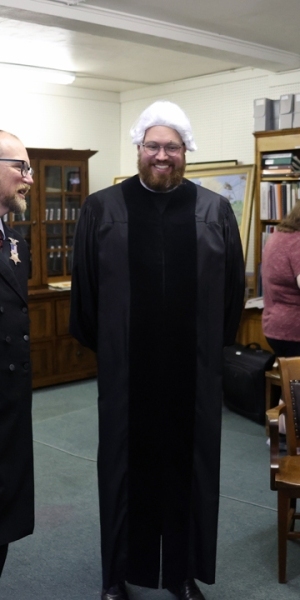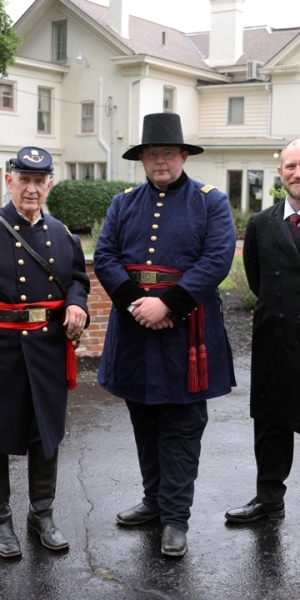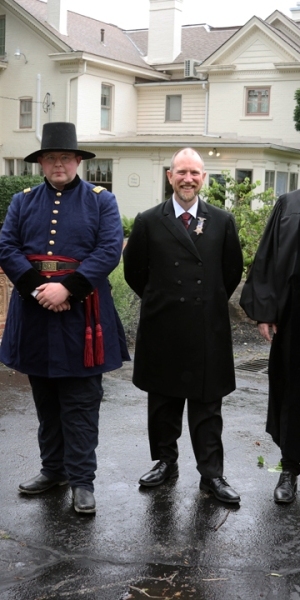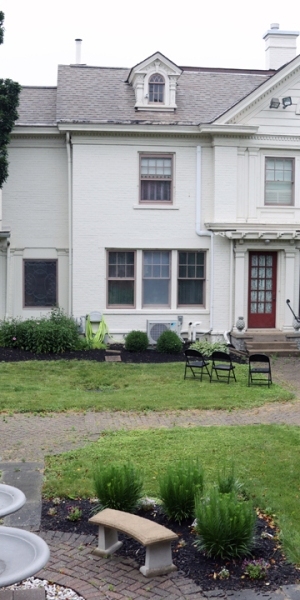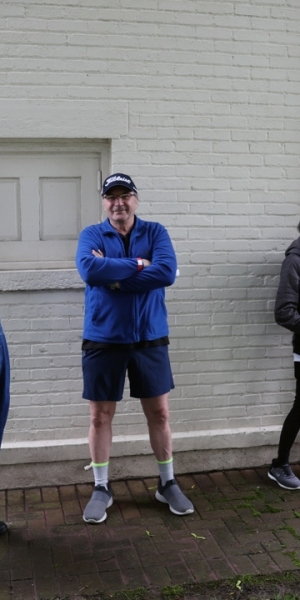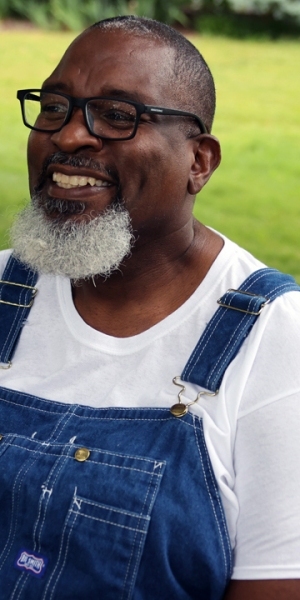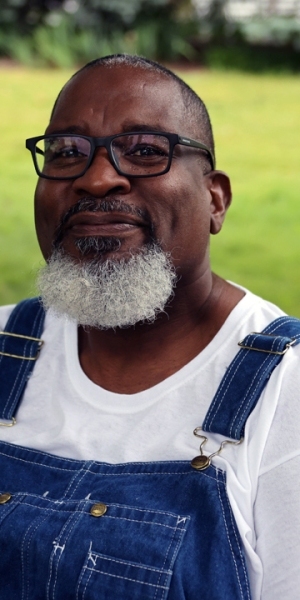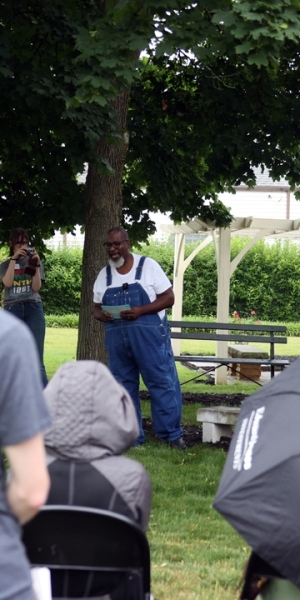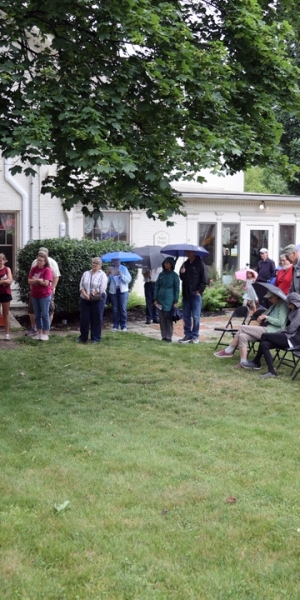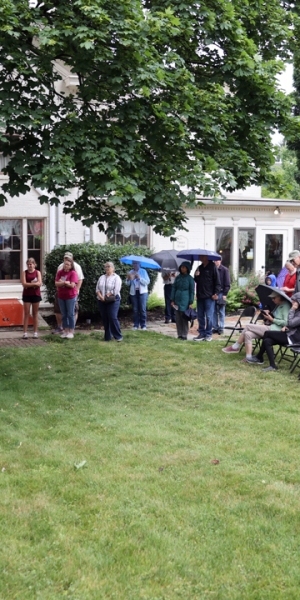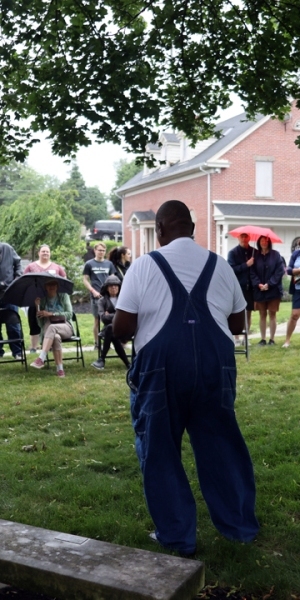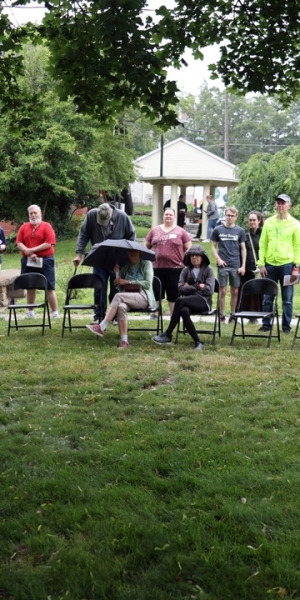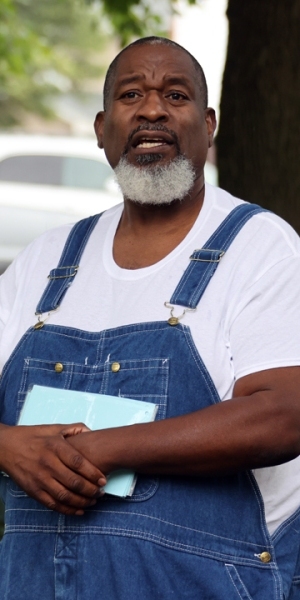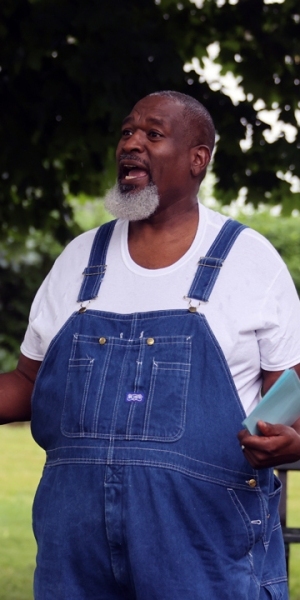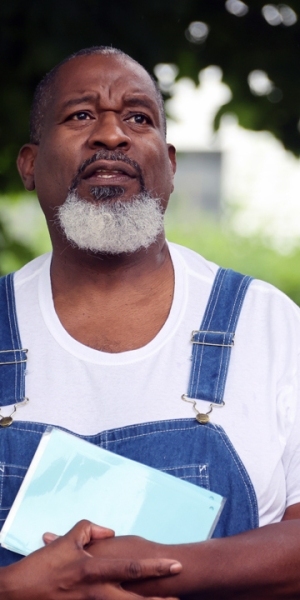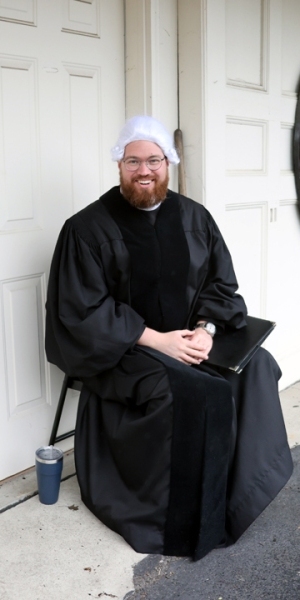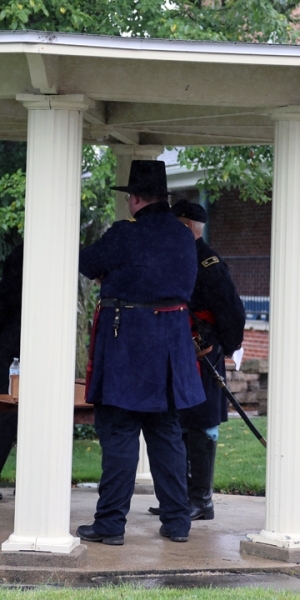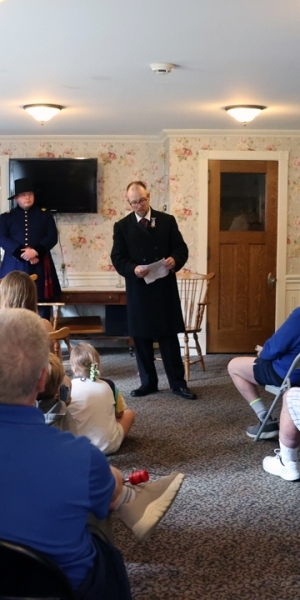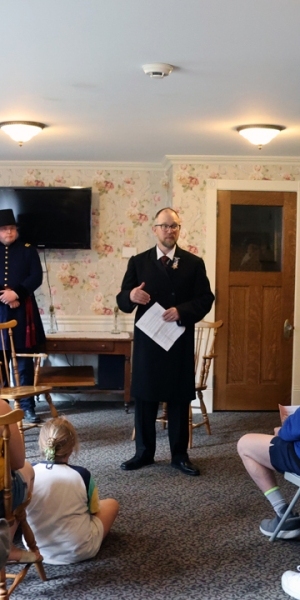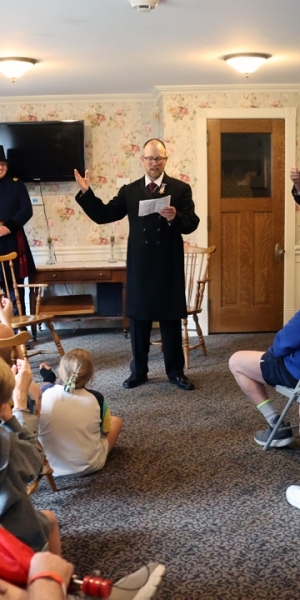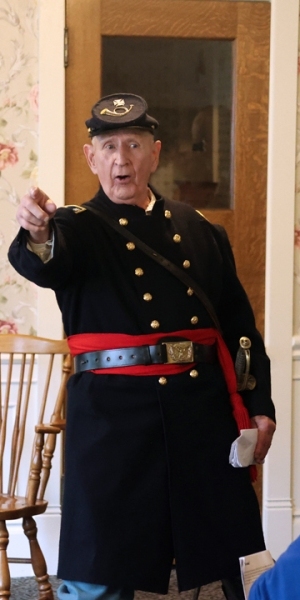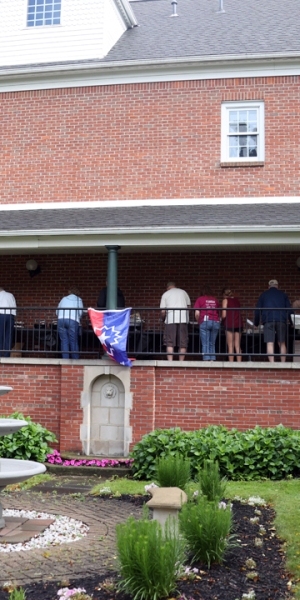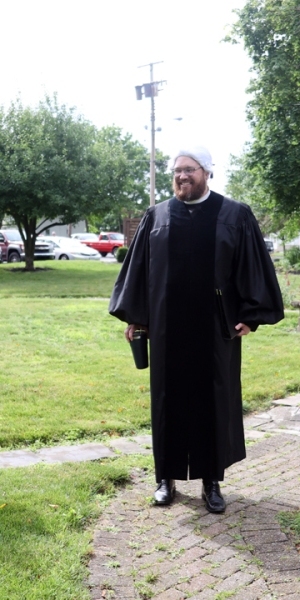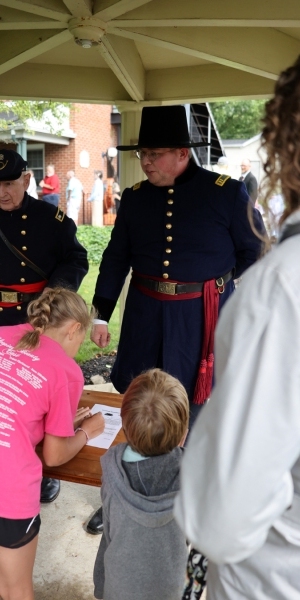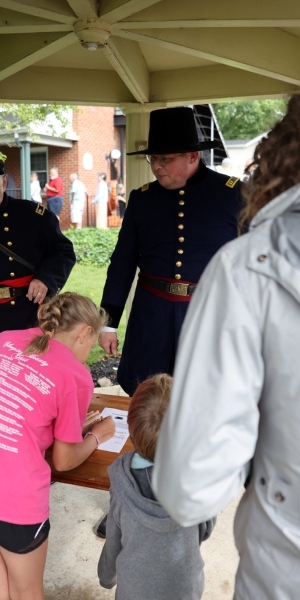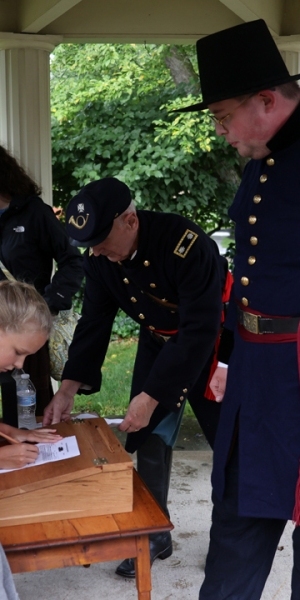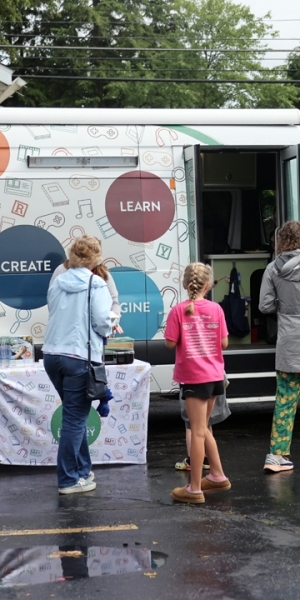Ashland Honors the Spirit of Freedom with Living History and Community Celebration on Juneteenth
ASHLAND, OH – June 19, 2025 — The grounds of the Ashland County Historical Society came alive Thursday evening with the echoes of the past and the spirit of freedom as the community gathered to commemorate Juneteenth—marking the end of slavery in the United States. The 2025 Juneteenth Celebration of Freedom was an animated blend of education, reenactment, and unity, designed to highlight the stories of those who lived through and resisted the oppression of slavery.
Hosted in collaboration with Ashland Main Street, the Ashland Public Library, and the Juneteenth Committee, this free and family-friendly event drew residents of all ages for an evening of remembrance, reenactment, and reflection.
Living Historians Reawaken Ashland’s Past
Guided walking tours launched at 4:15, 5:15, and 6:15 p.m., each led by passionate reenactors who transformed into historical figures—some once enslaved, others freedom fighters, educators, ministers, and even a future president. Each offered a lens into Ashland County’s connection to the broader struggle for emancipation and justice.
Gilbert Locke – From Bondage to Freedom
Portrayed by Reggie Cureton
Born into slavery in East Tennessee, Gilbert Locke’s life was one of courage and transformation. After the Civil War, Locke and his family traveled north along the Underground Railroad, eventually settling in Hayesville, Ohio. He worked as a paid farmhand for Dr. Armstrong, a known Underground Railroad “conductor” who helped smuggle enslaved people to safety. Locke’s journey represents the lived reality of emancipation—the fear, hope, and strength it took to build a new life in free soil. His story, shared on the tour, reminded visitors that freedom was often hard-won, and life after slavery still required resilience.
Maggie Sloneeker – A Daughter of Abolitionist Faith
Portrayed by Hannah Miller
Margret “Maggie” Nyce (Slonecker) Gregg was born in Savannah, Ohio in 1840 into a family deeply rooted in religious conviction and moral courage. Her father, Jared Slonecker, was a church elder who helped form a breakaway congregation in 1855 over disputes related to slavery. The Presbyterian Church of Savannah, like many churches across America, was split on the issue—and Maggie’s family chose the path of abolition. Her story represents the critical role of faith communities in the anti-slavery movement and the power of spiritual conviction to inspire action.
Barbara Garrett – A Life of Courage and Compassion
Portrayed by Jacque Workman
Barbara Benton Garrett’s life spanned continents and causes. Born in Scotland in 1826, she immigrated to the United States aboard the SS Lady of the Lake as a young girl. By 25, she had married Ezra Garrett in Ohio on Christmas Day, 1851. Together, they and the Garrett family became active agents on the Underground Railroad. The Garrett household sheltered freedom seekers, providing food, rest, and directions on the treacherous path toward Canada. Barbara’s narrative emphasized the importance of ordinary families who took extraordinary risks to challenge injustice.
Reverend Robinson – The Moral Struggle from the Pulpit
Portrayed by Rev. Justin Hylden
Rev. Robinson, born in 1814 in Pennsylvania, served as the minister of Ashland’s First Reenactments Presbyterian Church. Though moderate in tone, his writings—particularly his book Testimony and Practice of the Presbyterian Church in Reference to American Slavery—voiced a growing call for reform within Christian congregations. He navigated the tensions between biblical interpretation and social justice, advocating for a future where faith aligned with freedom. His portrayal opened conversations about how the church’s moral authority was both challenged and transformed during the slavery era.
Seth Barber – Teacher, Leader, Soldier
Portrayed by Dr. Peter Slade
Seth Morse Barber, born in 1820, was Superintendent of Ashland Schools from 1852 to 1861. With the outbreak of the Civil War, he answered the Union’s call by raising Company H of the 42nd Ohio Volunteer Infantry—composed mostly of his own students. Captain Barber exemplified the intersection of education, leadership, and patriotism. He was revered not just as a commander but as a mentor who fought alongside those he once taught. His story gave depth to the often-overlooked role of small-town educators in the nation’s most defining conflict.
President James A. Garfield – Scholar Turned Soldier
Portrayed by Ken Hammontree
Before becoming the 20th President of the United States, James A. Garfield was a scholar and abolitionist who took up arms for the Union cause. As Colonel of the 42nd Ohio, Garfield personally recruited Company H with fiery speeches against slavery—one of which he delivered in Ashland. He believed deeply in the moral imperative to end slavery and saw military service as a vehicle to that end. His portrayal brought historical gravity to the event, reminding attendees of the larger national struggle unfolding alongside Ashland’s local efforts.
Cultural Traditions and Community Unity
Alongside the reenactments, the event celebrated Juneteenth’s cultural roots. A complimentary community picnic featured classic Juneteenth fare like BBQ, watermelon, red velvet cake, and ice cream—paying tribute to African and African-American culinary traditions. Organizers noted the significance of red foods, which symbolize resilience, life, and ancestral strength in Yoruba and Kongo cultures.
Children enjoyed hands-on activities provided by the Ashland Public Library’s Bookmobile, while adults browsed books and resources that illuminated Black history and freedom struggles.
Why Juneteenth Matters
Originating from June 19, 1865—when Union troops arrived in Galveston, Texas, to announce the end of slavery—Juneteenth has grown from a regional observance to a national reflection. Though it didn’t mark the final end of slavery everywhere, it became a symbolic day of jubilation and unity. Today, Juneteenth reminds all Americans of liberty’s cost—and its ongoing promise.
“Juneteenth is not just Black history,” said one attendee. “It’s American history. It’s the fulfillment of ideals written into our founding, finally extended to all.”
A powerful tribute to the generations who endured and the communities now united in celebration of freedom.

